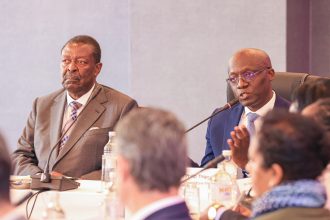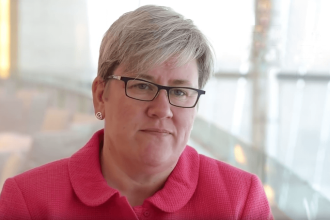By Henry Neondo in Baku, Azerbaijan
Zimbabwean President, Emmerson Munagagwa has said technology transfer and local critical mining processing are essential to enable Africa to lead in renewable energy value chains.
Speaking at a high-level panel on critical mining and just energy transition at the ongoing 29th Session of the Conference of Parties to the UN Framework Convention on Climate Change in Baku, Azerbaijan, President Mnagagwa highlighted ongoing initiatives to add value to mined minerals within Africa before export, thus capturing greater economic benefit and employment opportunities.
The high-level panel convened to address the equitable extraction and management of resources, spotlighting Africa’s essential role and the need for justice, equity, and inclusion in the critical mineral value chain.
This discussion reinforced that Africa’s vast mineral resources are essential to the green energy transition and key to the continent’s socio-economic progress if managed sustainably and equitably.
With the commitment to triple global renewable energy and double energy efficiency by 2030, demand for Africa’s minerals, such as cobalt, lithium, and rare earth elements, will surge. Yet, this shift must be accompanied by frameworks ensuring that extraction processes yield tangible benefits for African communities and the environment.
Key recommendations to ensure African resource sovereignty include establishing a High-Level Expert Advisory Group to focus on benefit sharing, economic diversification, and environmental safeguards in mineral-rich regions. This initiative brings together governments, private sector leaders, and civil society to guide equitable and sustainable practices across Africa’s mining sector.
Further, the panel called for a global traceability and transparency framework to ensure responsible sourcing of critical minerals. This framework aims to prevent exploitation, protect indigenous rights, and foster fair practices throughout the mineral supply chain. There was also a call for a global mining legacy fund that would repair past damage and build community trust, particularly within regions impacted by extractive industries. This could be transformational for African communities long affected by unsustainable mining practices.
In addition, the panel called for efforts to empower artisanal and small-scale miners in Africa with such programs focused on education, resources, and fair compensation to bring long-term benefits to those at the grassroots of Africa’s mining landscape.
The panel also set global circularity targets for critical minerals to reduce waste, bolster local economies, and mitigate the need for new extractions.
The European Union representatives affirmed its commitment to fair trade, robust supply chains, and multilateral cooperation, all crucial for Africa’s development in mineral extraction. Meanwhile, the International Energy Agency underscored the potential of recycling to meet mineral demands sustainably, highlighting Africa’s opportunity to become a leader in the circular economy for critical minerals.
Critical to this initiative is the involvement of indigenous peoples and local communities in decision-making processes. Panelists stressed that Africa’s approach to mining must prioritize environmental protection, social equity, and human rights to foster a just transition.




